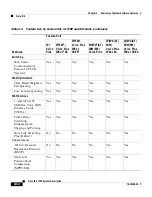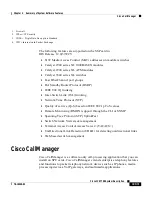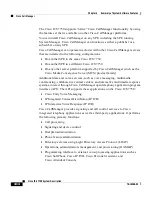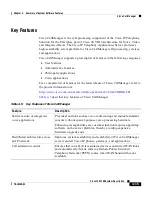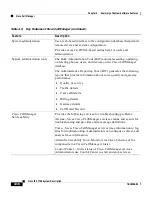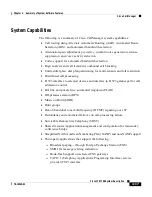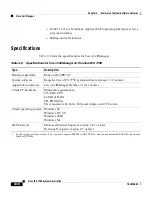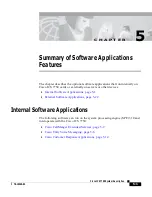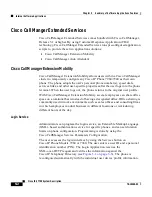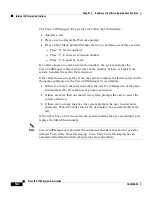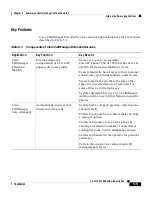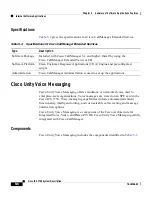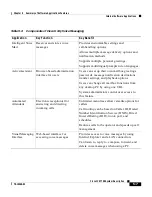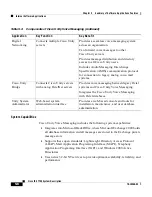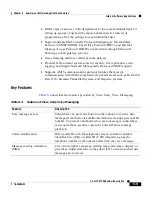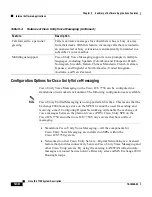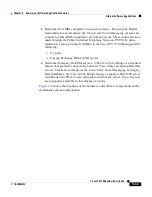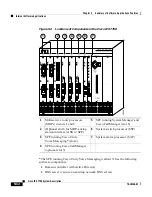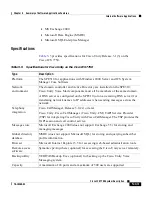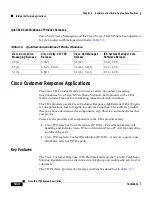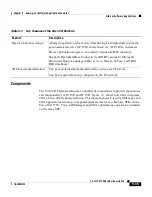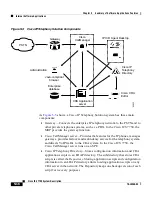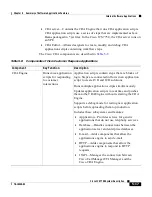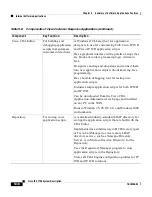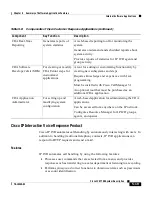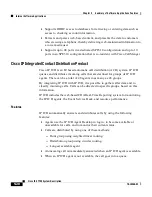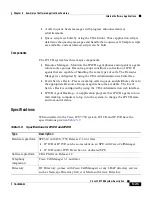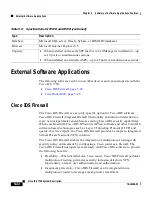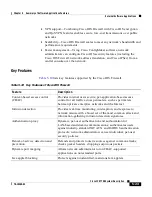
Chapter 5 Summary of Software Applications Features
Internal Software Applications
5-8
Cisco ICS 7750 System Description
78-10360-02
System Capabilities
Cisco Unity Voice Messaging includes the following system capabilities:
•
Integrates into Microsoft BackOffice, where Microsoft Exchange 2000 holds
all database information and all messages are stored in the Exchange private
message store
•
Supports these open standards: Lightweight Directory Access Protocol
(LDAP), Mail Application Programing Interface (MAPI), Telephony
Application Programing Interface (TAPI), and Windows 2000 Active
Directories
•
Uses native 32-bit NT services to provide optimum scalability, reliability, and
performance
Digital
Networking
Connects multiple Cisco Unity
servers
Provides a seamless voice-messaging system
across an organization.
Can forward voice messages to other
Cisco Unity servers.
Provides message distribution and directory
access to all Cisco Unity users.
Includes Audio Messaging Interchange
Specification (AMIS) communication protocol
for connection to legacy analog voice-mail
systems.
Cisco Unity
Bridge
Connects Cisco Unity servers
with analog OctelNet servers
Provides voice messaging between legacy Octel
systems and Cisco Unity Voice Messaging.
Integrates the Cisco Unity Voice Messaging
with Octel databases.
Unity System
Administrator
Web-based system
administration interface
Provides a web-based console and tools for
installation, maintenance, and user database
administration.
Table 5-3
Components of Cisco Unity Voice Messaging (continued)
Application
Key Function
Key Benefit

